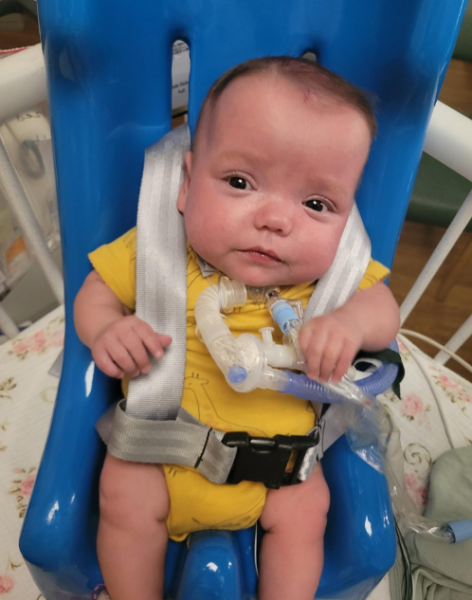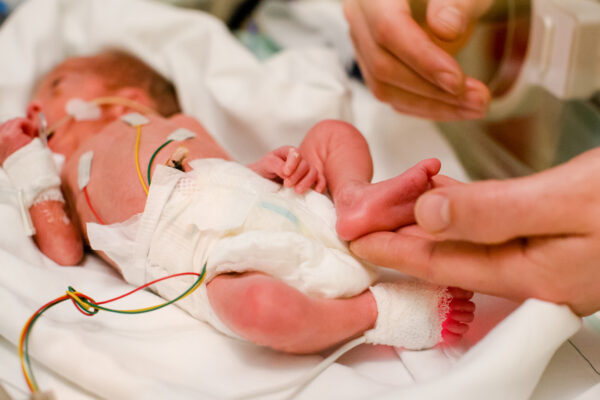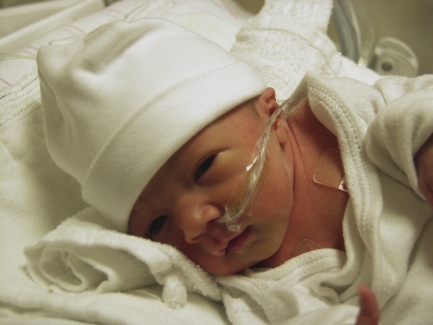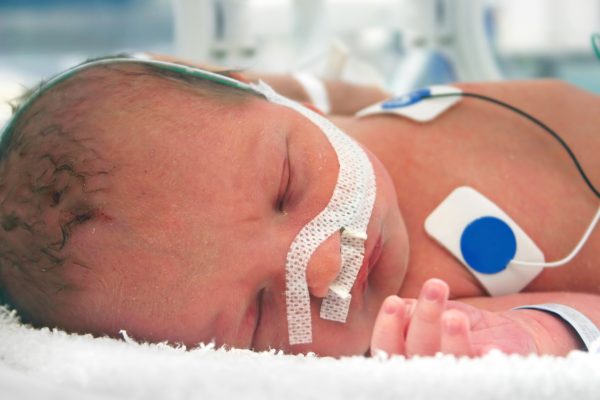Click here to download the brochure with complete course details:
COURSE DESCRIPTION:
This intermediate-advanced course will focus on the cardiopulmonary implications for the premature or medically fragile infant as related to their transition from inpatient hospitalization (NICU, PICU) to an outpatient rehabilitation level of care (term to 6 months of age). The course will focus on congenital cardiac conditions, medical/surgical management, and outpatient rehabilitation interventions to maximize the infants developmental and feeding skills. Discussion regarding primary heart repair and staged palliative surgical interventions with treatment considerations for each care plan. Clinical assessment and treatment skills will be presented that will assess the infant’s physiological stability, evolving motor control, sensory stability, and transition to oral motor skills that support feeding. This outpatient-focused course will advance the critical reasoning skills of the pediatric therapist to support the infant’s ability to obtain foundational motor and sensory skills. These skills include the ability of the infant to cough, produce audible phonation, oral motor skills, swallow skills, trunk facilitation, gestational age-appropriate positioning/handling to support the emergence of gross motor skills for postural stability. Learn movement analysis skills (via lab time and video presentations) to assess breathing patterns, facilitation techniques to support trunk development, positioning strategies to support maximal cardiac perfusion, and feeding techniques to optimize weight gain with energy conservation considerations. We will discuss current literature as relevant to this topic and apply a systems theory approach for case study treatment planning.
LEARNING OBJECTIVES:
- Compare and contrast the anatomical and kinesiological developmental changes for the newborn chest wall as related to infants born with and without congenital heart defects
- Choose at least three influences of prematurity and cardiopulmonary co-morbidities on chest wall development and efficacy of movement development
- Identify the different classifications of congenital heart defects in infants
- Analyze the effects of surgical heart interventions on gross motor movement, trunk development, swallow, and feeding as related to infant development
- Incorporate postural support with positioning and handling of infants for improved chest wall mobility post heart repair during feeding and gross motor movement using the provided case study.
- Integrate a systems approach to an individualized care plan for the infant with cardiopulmonary compromise
AUDIENCE:
This course is recommended for intermediate to advanced Early Intervention and outpatient pediatric or neonatal therapists (PTs, PTAs, OTs, OTAs, and SLPs), working with infants that have congenital cardiac defects.
*To maximize the learning experience, please bring a soft body doll with you to watch the course. The ideal size would be 10-15”, but any soft body doll will work.
NOT SURE WHERE TO START?
We’re excited to offer a variety of courses led by NICU expert, Holly Schifsky. Each course is comprehensive, can stand alone, and can be taken in any order based on your interests, needs and availability.
If you’re planning to attend multiple sessions with Holly, she suggests the following sequence as a helpful structure—if it aligns with your schedule.
- Babies, Bodies and Brains (Live Webinar Only)
- Baby Beats and Breaths (Live or On-Demand)
- Supporting Infant Movement Development (Live Webinar Only)
Breathe, Baby Breathe (Live or On-Demand) and Infants with Cardiopulmonary Compromise (On-Demand Only) fit anywhere within the above sequence.
For even more of Holly’s expertise, see her session at the 2025 Birth to Three Annual Conference for NICU Graduates: The Impact of Prematurity and Prolonged Hospitalization on Early Infant Development.
SCHEDULE:
1 Hour: Typical Development of the Infant Chest Wall
- Anatomy and kinesiology of the chest wall, ribcage, and spine
- Developmental changes to the anatomical shape and function of these structures as related to gross motor development, postural control, feeding, and maturation
1 Hour: Cardiopulmonary System of the Premature or Critically Ill Term Infant: Anatomical Differences, Congenital Heart Defects, and Vascularization. A Therapist’s Guide for Critical Reasoning
- Cardiopulmonary system: the unique changes required for the infant to have a successful in-utero to extra-utero transition
- Common congenital heart defects and effects on infant development
- Post-surgical cardiac repair on the developing chest wall
1 hr. 45 min: Assessment Techniques: Critical Reasoning to Assess Breathing Patterns for the Premature or Medically Fragile Infant, Effects of Cardiopulmonary Co-morbidities, Chest Wall Development, Oral Motor Skills, and Feeding Skills
- Components of adaptive and maladaptive breathing patterns
- VIDEO: analyze and assess breathing patterns for infants with cardiopulmonary conditions
1 hr. 30 min: Treatment Interventions: Handling Techniques to Facilitate Core Development, Oral Motor Skills, Chest Wall Movement, Feeding/Swallowing, and Caregiver Education
- LAB & VIDEO: trunk facilitation to maximize infant motor development with concepts of energy conservation and breathing synchrony: facilitated tuck, abdominal activation, rolling facilitation, upright active sitting
- Integration of sternal precautions into care plan and progression to upper extremity weight bearing
- Oral motor assessment techniques: facilitation of tongue movement, oral structure support, and swallow activation
- Feeding assessment to reduce risk of aspiration, increase caloric intake, and reduce weight loss
45 min: Additional Considerations
- The effect of scars on movement development
- Gastrointestinal and Aerodigestive development as related to oral feeding with congenital cardiac condition
- Pharmacological side affects
- Caregiver Education
- CASE STUDY
Holly Schifsky, OTR/L, CNT, NTMTC, CBIS, has worked in pediatrics for the past 28 years with the past 17 years in a level IV NICU. She is a Certified Neonatal Therapist, Certified Neonatal Touch and Massage Therapist, Certified Brain Injury therapist, a member of National Association of Neonatal Therapists, and has completed 6-month mentorship in infant/child NDT.
She has worked within the NICU and NICU follow-up clinic to maximize patient and family outcomes for the most complex premature and medically-fragile term infants. Holly received her BS in OT from the University of North Dakota. She is a faculty member for the Neonatal Touch and Massage certification; and Manuel Edema Mobilization training. She is the recipient of the National Association of Neonatal Therapists Clinical Excellence award in 2018, due to her clinical expertise and dedication to advancing the therapeutic interventions for NICU infants with cardiopulmonary conditions.
Financial Disclosure: Holly Schifsky receives an honorarium from Education Resources, Inc.
Non-Financial Disclosure: Holly Schifsky has no relevant non-financial relationships to disclose.
Once you purchase an online course you will have access to the course materials. If you have purchased this course, please ensure you have logged in to your account in order to take the exam.
Once you purchase an online course, you will have the opportunity to take an exam to test your retention of the material. If you have purchased this course, please ensure you have logged in to your account in order to take the exam. The exam must be completed with a pass rate of 80% or more in order to receive your certificate of attendance.
Continuing Education Hours for disciplines not listed below: 6.5 contact hours (0.65 CEUs). Intermediate level. License #______________.
Education Resources Inc. is an AOTA Approved Provider of professional development. Course approval ID# 03375. This Distance Learning-Independent Course is offered at 6.5 contact hours 0.65 CEUs. Intermediate level, OT Service Delivery. AOTA does not endorse specific course content, products or clinical procedures. This course can be used toward your NBCOT renewal requirements for 6.5 units. Provider for the FL Occupational Therapy Association CE Broker for 7.5 CE Hours - approval # 20-919055. ASHA CEUs are awarded by the ASHA CE Registry upon receipt of the CEU Participant Form from the ASHA. Approved CE Provider for up to 0.65 CEU’s. ASHA CE Provider approval and use of the Brand Block does not imply endorsement of course content, specific products, or clinical procedures. Course meets the basic criteria of the MD Board of Physical Therapy Examiners for 0.65 CEU's, 6.5 contact hours. Approval # 2209-04 by the NJ State Board of Physical Therapy Examiners for 6.5 CEC's. Approved sponsor by the State of IL Department of Financial and Professional Regulation for Physical Therapy for 7.5 contact hours. The Illinois Early Intervention Training Program has approved this event for 5.25 hours of EI credential credit in the area of Intervention. Approved provider by the NY State Board of Physical Therapy for 7.8 contact hours (0.78 CEUs). Education Resources is an approved agency by the PT Board of CA for 6.5 contact hours. Approved by the APTA Kentucky, A Chapter of the American Physical Therapy Association, for 6.5 Category 1 contact hour(s). Expiration Date: 3/6/25, approval #CS61-2023-APTAKY. This activity is provided by the TX Board of PT Examiners accredited provider #2210017TX for 6.5 CCUs and meets continuing competence requirements for PTs and PTAs licensure renewal in TX. Approved Provider for OK State Board of Medical Licensure & Supervision #BAP202310003 for 6.5 hours, 0.65 CEUs. This course meets the criteria for 6.5 hours that can be applied toward the Neonatal Therapy National Certification. 6.5 hours of this course qualify towards the discipline-specific hours for the 20-hour requirement for NDTA re-certification. They do NOT qualify towards the 8-hour NDTA Instructor requirement for re-certification.
The following state boards of physical therapy accept other states’ approval: AK, AR, AZ, DC, DE, GA, HI, ID, IN, KS, MA, MI, MO, MS, NC, OR, PA, RI, SC, UT, VA, VT, WI, WY. The following state boards of physical therapy either do not require course pre-approval or do not require CEUs for re-licensure: AL, CO, CT, IA, ME, MT, NE, ND, NH, SD, WA.
Education Resources Inc. 266 Main St, Suite 12, Medfield, MA 02052 • 800-487-6530













